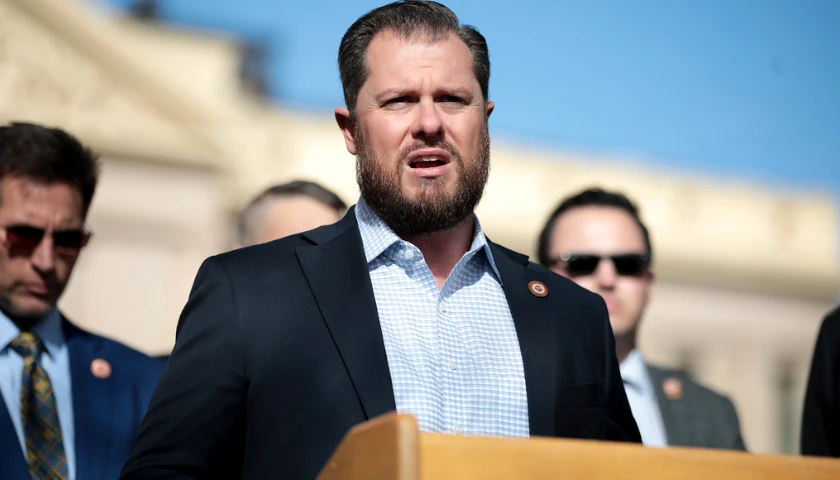by Robert Romano
He’s still got gas in the tank. A lot.
Former President Donald Trump announced on Nov. 15 at Mar-a-Lago in Palm Beach, Fla. that he will for a third time be running for president in 2024 against current incumbent President Joe Biden. And maybe three times is the charm.
Just ask Benjamin Netanyahu, who after being defeated in 2020 for his third term as Prime Minister of Israel, ran again in 2022 — and won.
Or Luiz Inácio Lula da Silva, who was just elected for a third term to President of Brazil in 2022 after more than a decade out of office.
In America, only Democrat Grover Cleveland was ever elected twice in non-consecutive terms, winning the elections of 1884 and 1892 after narrowly losing in 1888.
But Franklin Roosevelt won election four times before the Constitution’s 22nd Amendment created term limits.
Sometimes former or current presidents can be extremely viable candidates for their nations’ highest offices. They can be quite competitive. And shouldn’t they be? Who’s got more experience at being president than a former president?
But to be successful, they often need to rebuild their political coalitions, or the journey could be fraught with peril.
Theodore Roosevelt attempted a third term in 1912 to unseat the then-sitting President William Howard Taft, easily won the Republican Party primaries in states that that had them at the time, but then was denied the nomination at the national convention, ran third party, leading to disaster for the GOP as Democrat Woodrow Wilson was easily elected.
1912 is a cautionary tale not only for Trump, but even more so for the GOP, whose near miss in the 2022 midterms has many asking questions about what it will take to activate the low propensity Trump voters who voted in 2020 and typically only vote in presidential elections, but might be new voters.
Winning the U.S. House is still quite significant and a major win for the GOP, but Kevin McCarthy will have a very slim majority in the House that Republicans will almost certainly lose if Biden is reelected.
For Trump, another run in 2024 always appeared all but guaranteed, just given how close the 2020 election was, losing by a scant 43,000 votes in Georgia (10,000), Arizona (10,000) and Wisconsin (23,000). Had those three states gone the other way, the Electoral College would have been tied 269 to 269, and the race would have gone to the House of Representatives.
Now, with states like Texas and Florida gaining U.S. House seats in the 2020 Census, wins in Georgia, Arizona and Wisconsin in 2024, along with all the other states Trump won in 2020 including Florida, Ohio and North Carolina, would give Trump or another Republican nominee should Trump lose 271 Electoral College votes. The Blue Wall got a big Swiss cheese hole in it in the Census — in Wisconsin.
The incumbency advantage is not easy to beat. It was not easy for Biden to beat Trump, but he did it in 2020 after running in the Democratic Party primary against a weaker challenger in Sen. Bernie Sanders (D-Vt.).
Trump’s speech itself largely focused on the various challenges facing America, which the former president described as a “failing nation” under Joe Biden, citing the imminent recession, the inflation scourging U.S. households, the deliberate slowdown of U.S. energy production, fuel shortages, hundreds of thousands in migrant caravans illegally crossing the unprotected southern border, the fentanyl opioid crisis, rising violent crime and gangs, the botched U.S. military withdrawal from Afghanistan and the lack of any U.S. response to competitive currency devaluations by U.S. trade partners including China.
And that wasn’t even the half of it. Trump has a lot to say about what is going on in America right now. As for the Republican nomination, he should have a lot of support among the party faithful. In 2020, he netted 74 million votes, improving his 2016 total by 11 million votes.
Clearly, this is about unfinished business for Trump. But first he has to take care of business. Now, the question is whether Trump can unite Republicans and secure his party’s nomination. And with the Iowa Caucuses and the New Hampshire primary more than year away, a lot can happen. Stay tuned.
– – –
Robert Romano is the Vice President of Public Policy at Americans for Limited Government.








